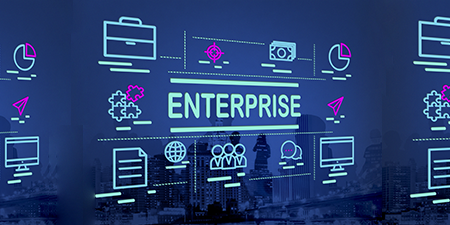ERP, or Enterprise Resource Planning, in the governmental sector refers to the implementation
of integrated software solutions that
streamline and manage various administrative and operational processes within government agencies and departments. These systems are designed to enhance efficiency, transparency, accountability, and service delivery across government functions. Here's an example of how ERP is defined and used in the governmental
sector.
Example Use Case:
Let's consider a hypothetical scenario where a municipal government decides to implement an ERP system to streamline its operations and enhance service delivery to residents:
Financial Management: The ERP system enables the municipality to manage budgeting, accounting, revenue collection, and expenditure tracking more effectively. It provides real-time visibility into financial transactions, budgets, and performance metrics, allowing government officials to monitor spending, optimize resource allocation, and ensure fiscal responsibility.
Human Resources Management: The ERP system facilitates the management of employee information, payroll processing, benefits administration, and workforce planning. It automates HR workflows, ensures compliance with labor laws and regulations, and enhances employee productivity and satisfaction.
Procurement and Contract Management: The ERP system helps the municipality manage procurement processes, vendor contracts, and supply chain operations efficiently. It automates procurement workflows, streamlines bidding and tendering processes, and improves transparency and accountability in public spending.
Project Management: The ERP system assists the municipality in managing capital projects, infrastructure development, and public works initiatives. It enables project planning, scheduling, budgeting, and resource allocation, facilitating collaboration between different departments and stakeholders involved in project implementation.
Performance Monitoring and Reporting: The ERP system provides tools for performance monitoring, reporting, and analytics that enable the municipality to track key performance indicators (KPIs), measure outcomes, and evaluate the effectiveness of public programs and services. It supports data-driven decision-making, strategic planning, and policy formulation by providing actionable insights and intelligence.
Citizen Services and Engagement: The ERP system enhances citizen services and engagement by providing online portals, self-service options, and interactive platforms for residents to access government information, submit requests, and provide feedback. It promotes transparency, responsiveness, and citizen-centric governance by improving access to government services and fostering community engagement.
In summary, ERP systems play a crucial role in modernizing and optimizing government operations, enabling municipalities, government agencies, and public sector organizations to deliver efficient, transparent, and citizen-centric services while enhancing accountability, compliance, and performance.
If you like the article and in need fo such a service, please dont hesitate to contact us



